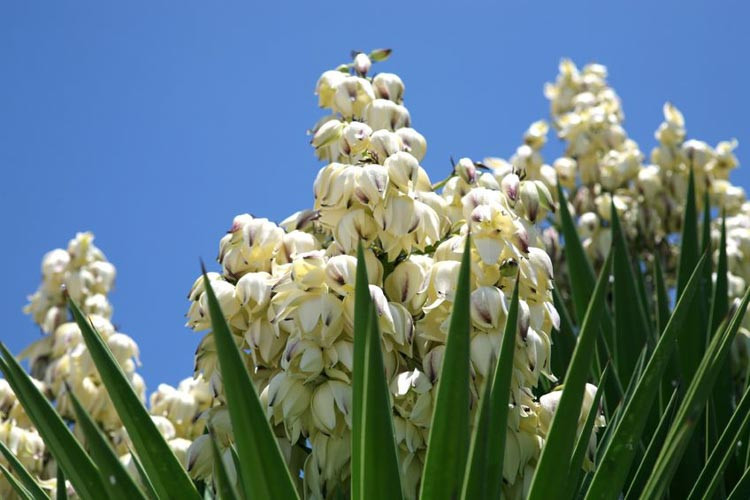Yucca
Yucca is a genus of over 40 species in the agave family, native to arid regions of North and Central America
Architectural plants: Yucca plants are known for their sword-like leaves and striking flower spikes
Diversity: They come in a variety of shapes and colors, from small, compact specimens to towering trees. Common types include Yucca filamentosa, Yucca gloriosa, and Yucca brevifolia.
Hardiness: many are able to withstand temperatures well below freezing. Some plants, such as Yucca filamentosa, are hardy in USDA Zones 4-11, while others, such as Yucca rostrata, can survive in Zones 5-11.
Drought-tolerant: Yuccas have adapted to survive in harsh, dry conditions. They have deep root systems that allow them to access water stored deep in the soil, and they are able to withstand long periods of drought without suffering damage.
Fire-resistant: Yuccas are generally considered to be fire-resistant. They have a fibrous, succulent nature that allows them to retain moisture even in dry conditions.
Edible: The fruit, flowers, and stem are all edible and have been used by indigenous peoples for centuries as a source of food.
Low maintenance: Yuccas are generally low-maintenance and require minimal care.
Landscape uses: Yuccas are often used as specimen plants or in groupings for dramatic effect in landscaping. They are ideal for xeriscaping and other water-wise landscaping techniques
Indoor uses: Yucca can be grown indoors, depending on the variety and growing conditions. They make great indoor plants due to their interesting shape and texture.
Other uses: Yucca extract is used in soaps, shampoos, and other personal care products for its cleansing and soothing properties. It is also a common ingredient in natural and alternative medicine for its anti-inflammatory and antioxidant properties. The tough fibers have been used for making ropes and baskets for centuries.
Wildlife: Yuccas provide habitat and food for a variety of wildlife species. They provide food and shelter for a variety of insects, birds, and mammals, such as desert tortoises, jackrabbits, and quail.
Deer: Deer typically avoid eating yucca plants, as their leaves are tough and fibrous and have sharp spines on the edges.

